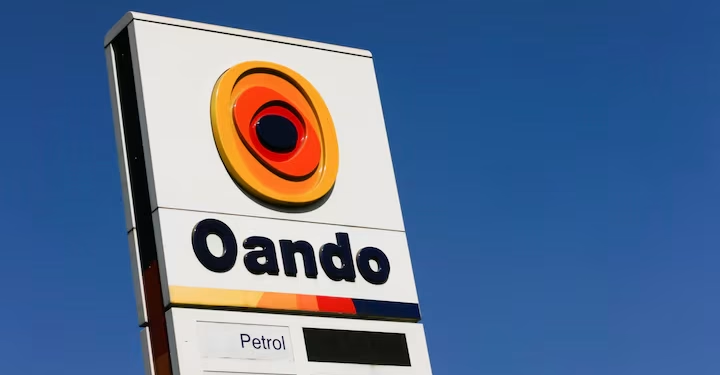Nigeria’s oil and gas landscape is undergoing a major transformation, as Oando Plc, one of the country’s leading energy companies, has announced the suspension of its petrol importation activities. The decision marks a significant shift in the downstream petroleum market, which has been dominated for decades by fuel importers due to limited local refining capacity. The company attributes this move to the growing influence of the Dangote Refinery, whose increasing domestic output is gradually reshaping the nation’s fuel supply chain.
In its latest financial disclosures, Oando revealed that its trading revenue declined by about 20 percent, falling from ₦3.2 trillion in the corresponding period of 2024 to ₦2.5 trillion in 2025. The company explained that the reduction was primarily due to the fall in imported petrol volumes, as the Dangote Refinery’s production continues to replace foreign-sourced fuel. According to Oando, “our trading segment faced headwinds as declining PMS imports and rising local refining capacity altered the traditional supply dynamics.”
Despite the downturn in trading revenue, Oando’s overall profitability improved considerably. The company’s profit after tax reportedly rose by over 160 percent, largely driven by the strong performance of its upstream operations and other non-trading activities. This financial resilience underscores Oando’s strategic pivot away from the volatile import-driven downstream business toward more sustainable and diversified revenue sources.
The Dangote Refinery, A 650,000 barrels-per-day facility located in Lekki, Lagos — has been central to this shift. Designed to meet Nigeria’s domestic demand and even export refined products to neighboring countries, its operations have begun to reduce the country’s reliance on imported fuel. For decades, Nigeria paradoxically exported crude oil while spending billions of dollars annually importing refined petroleum products. The refinery’s growing output promises to reverse that imbalance, offering potential stability in fuel supply and pricing.
Oando’s decision reflects this new reality. With local refining capacity on the rise. For Oando, suspending imports is both a strategic and an adaptive move — one that allows it to align with Nigeria’s new energy direction.
Industry observers have begun to speculate about the next logical step: a possible partnership between Oando and Dangote Refinery. Such a collaboration could see Oando leveraging its existing distribution network to market and distribute Dangote’s refined products across Nigeria. This would not only sustain Oando’s presence in the downstream sector but also strengthen domestic fuel availability by integrating refinery output with established retail and logistics systems.
























































